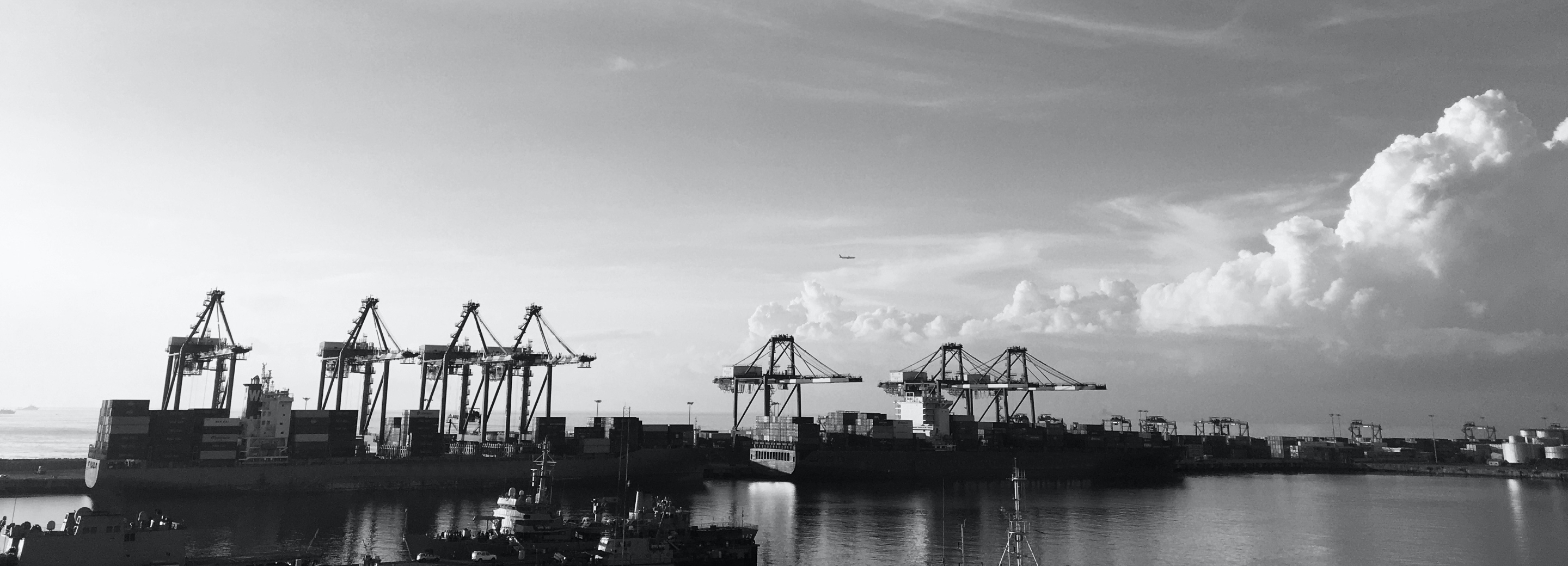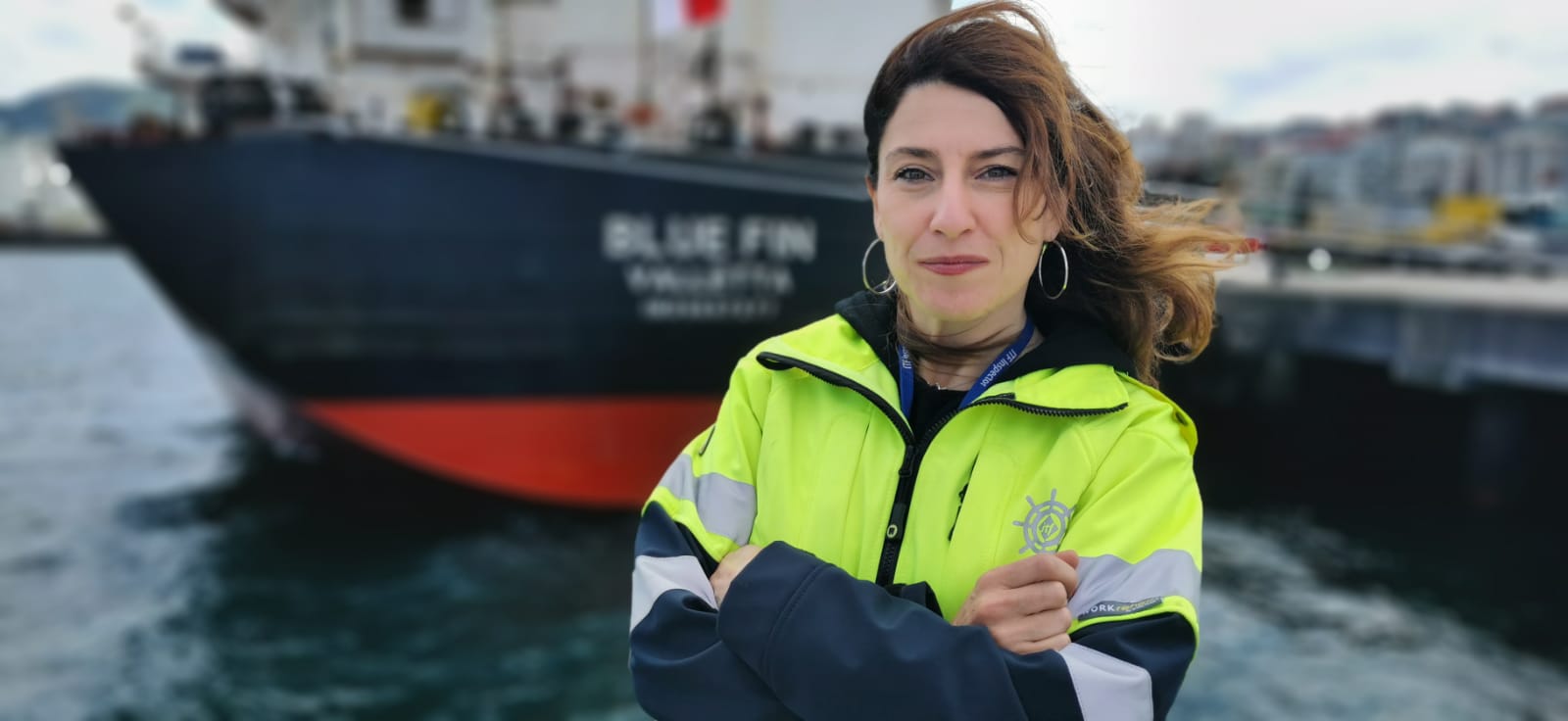
Fishers on a 50-year-old trawler should not be made to go back to sea, even to sail to a repair yard, the International Transport Workers’ Federation (ITF) is demanding of a vessel which has been so poorly maintained it has become death trap.
The fishing vessel Santa Isabel (IMO 7224540), flying under the Belize flag, has been detained by maritime authorities in the port of Vigo in northern Spain since 10 May 2023, after the ITF drew attention to its appalling state, as well as the intolerable conditions for crew observed by the ITF inspector.
“The vessel is fundamentally unsafe,” said Luz Baz, the ITF Coordinator who boarded the ship to verify conditions. “Navigational equipment is broken, there are electrical fire risks in the living areas, the fire-fighting system is not working. On top of that, there are no medical certificates on board, and no certificates to show the crew have received proper training [they should all have International Convention on Standards of Training, Certification and Watchkeeping for Fishing Vessel Personnel (STCW-F) certificates]. The owners appear to have been putting fishers’ lives at risk to avoid spending any money to meet basic standards of safety or maintenance.”
An inspection by the Vigo harbour master recorded more than 50 severe deficiencies. An assessment of the ship by the Spanish Foreign Health Service noted a further 25 deficiencies related to hygiene, health, sanitation and living conditions on board. Investigations by the ITF have revealed that the vessel has also been accused of illegal fishing by a number of environmental groups.


Fishers fear owner reprisals
The ITF became involved before the Santa Isabel arrived in Vigo when some of the crew asked for help through FishSupport, a network of inspectors and union contacts who have the knowledge and experience to assist fishers. The fishers had not been paid and feared they would be sent home without pay when the ship arrived in Spain to unload its catch. They requested anonymity because they were scared of reprisals by the ship’s owners.
The crew is from Senegal, Peru, Indonesia, and Spain. The ITF understands that most of the non-EU fishers now simply want to collect the wages they are owed and have the owners (as is their responsibility) arrange for them to return home.
“These fishers should not be expected to spend another minute risking their lives in these atrocious conditions,” said Baz. “We believe the owners, or their local agent in Vigo, should pay for a hotel for the crew so they have proper rest in decent, hygienic conditions. They should not be expected to go back on board the vessel until it has been properly repaired – not even to sail to a repair dock.”

The system that promotes suffering
Despite the blatant deficiencies found by the ITF and Spanish port authorities, the Flag state Belize told the ITF that its own inspector had been on board, claiming that “internally the vessel is in fair condition”.
“This is so at odds with our own findings, one has to question Belize’s motivations,” said Baz. “Why is a ship operating out of Spain, whose owners appear to have no connection to Belize, even registered there? It is because the owners know they will be able to behave however they please because Belize is a Flag of Convenience and will assert little or no regulatory control.”
The country where a ship is registered (the Flag state) has clear responsibilities to regulate the behaviour of the owners under international law. But many states will register a ship despite owners having no obvious connection to their country in exchange for a minimal payment. Any form of regulation is a cost for them and an annoyance to their customers (ship owners) and so there is no incentive to become involved. The ITF maintains a list of states like this which it considers to be Flags of Convenience (FOC). Belize is on this list.
Sadly, the consequence of this scam where rogue ship owners choose to use FOCs to avoid oversight is always the suffering of the women and men who risk their lives by working at sea. Their safety and welfare come a poor second to the commercial interests of both ship owners and the countries where they register.
The registered owner of the Santa Isabel is AC Fishing Company located in the Seychelles, where it is almost impossible to hold a company to account. The operator is Atlantikaromas Unipessoal Lda, and the beneficial owner seems to be Antonio Conde & Companhía, of Aveiro, Portugal. It is not uncommon for the most irresponsible ship owners to use shell companies and opaque registers to dodge their responsibilities for the wellbeing of the seafarers they employ.
“The ITF fervently believes that until ship owners are made to be transparent about their dealings, the wellbeing and safety of seafarers will continue to suffer,” said Baz.
“Because owners of vessels like the Santa Isabel are allowed an unfair cost advantage by circumventing legal requirements, it encourages other companies to also break the law. We lament shipwrecks and pay homage to their victims, but not enough is done to prevent them. We should not be letting dangerous ships work the ocean with impunity, without control or sanction.”

NOTES:
- Full resolution versions of images contained on this page are available on request for press (media[at]itf.org.uk, subject 'Santa Isabel photographs')
- Interviews can be given by Luz Baz in EN, ES on request (and subject to availability)
About the ITF: The International Transport Workers’ Federation (ITF) is a global, democratic, affiliate-led movement of 740 transport workers’ unions recognised as the world’s leading transport authority. We fight passionately to improve working lives; connecting trade unions and workers’ networks from 153 countries to secure rights, equality and justice for their members. We are the voice of the 20 million transport workers who move the world.
